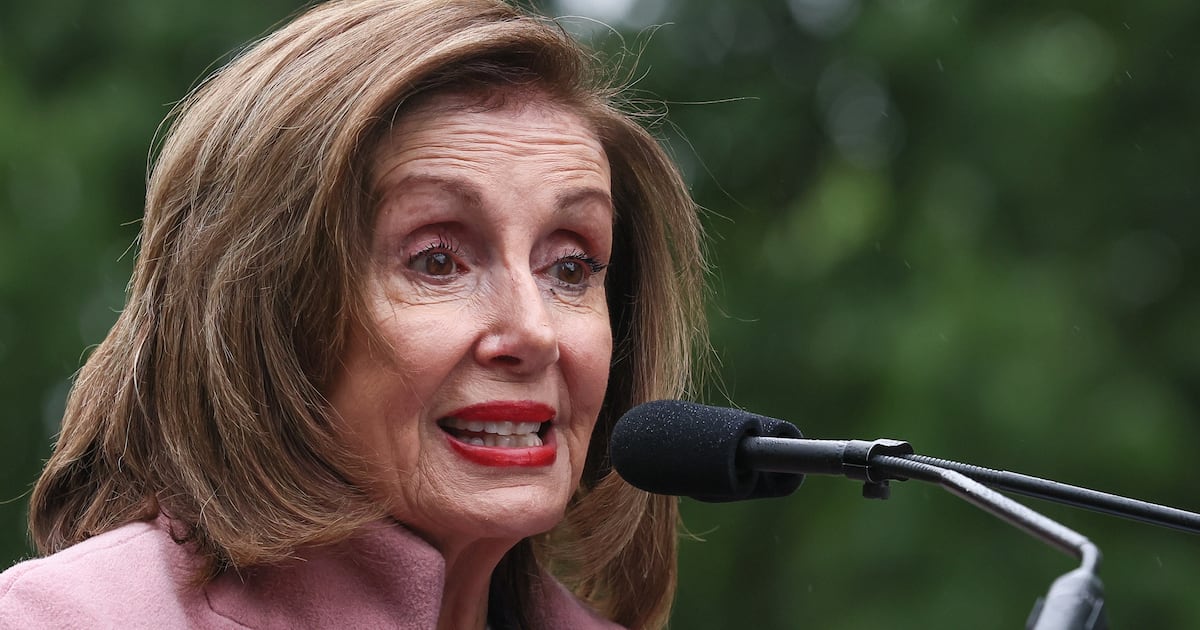It was typical British dodging. After a wide-ranging scandal, a 14-month Inquiry, and four months of political wrangling over press ethics, Prime Minister David Cameron bowed to the inevitable and, on Monday, joined his deputy prime minister Nick Clegg, and the leader of the Labour opposition Ed Miliband, in proposing a voluntary but powerful watchdog to monitor the British press.

A deal was done late on Sunday night and early Monday morning. Sources close to the talks told The Daily Beast that the final negotiations, taking place in an antechamber outside Ed Miliband’s office, were amicable and fueled by helpings of pizza and chocolate biscuits. (Though, on Monday morning, the tabloid newspaper the Sun compared the battle in Parliament with the battle on D-Day, foolishly comparing the paper’s opponents with Hitler.)
Meanwhile, in an unrelated hearing on Monday, the high court heard how there could be another 800 phone hacking victims from the now shuttered News of the World, in addition to the 2,500 others already detailed in the notebooks of private investigator Glenn Mulcaire.
It was also revealed that the daily Sun newspaper had accessed the texts of a Labour MP Siobhain McDonagh after her phone was stolen from the House of Commons in late 2010.
The arrests last week of four senior executives at the Trinity Mirror paper group over alleged phone hacking suggests that privacy intrusion was endemic in Fleet Street, and undetected for almost a decade.
There have been no less than six inquiries in the past 60 years into Britain’s famously feral Fleet Street paper, with the last compromise—the Press Complaints Commission—discredited by its supine attitude to the phone-hacking scandal. And the new self-regulatory body faces quite the challenge: enforcing ethical rules without intruding on the robust ability of the British papers to hold power to account.
The ongoing and vicious debate about ethics, regulation, and freedom of the press has split both the left and the right, though Cameron seems to have lost the most political points for his about-face on the issue: walking away from talks last week only to concede at the 11th hour.
Still, Cameron said he was “delighted” as he put forward the new charter on Monday afternoon, seconded by Miliband who said “today we correct the wrongdoing of decades.”
Both sides had already agreed the voluntary body should be able to impose large fines. And the government moved on several issues: apologies should get the same prominence as the offending stories, among other things.
In the debate that followed, most MPs were supportive of the compromise, though—as Iain Martin pointed out in the Daily Telegraph—most Americans would “simply would not compute” lawmakers interfering with free expression.

However, Britain has no written constitution or First Amendment, and media laws intended to ensure competition and control cross-ownership have proven quite ineffective, allowing the British press to remain in the hands of a small number of people.
However, not everyone was happy with the new deal. The Hacked Off campaign, representing victims of press intrusion, claimed they got “second best” in the watered-down legislation. Another campaigning group, Index on Censorship, claimed British democracy had been “tarnished” by the “undesirable” intrusion of legislation into press activity.
The journalist union, the NUJ, cautiously welcomed the creation of a regulator that could be “genuinely independent of the industry and the state, one that has teeth and powers of investigation.” However the Newspaper Society, representing over 1000 local newspapers claimed the financial penalties for those outside the system could be “crippling.”
A new, more liberal, defamation law will now proceed to a vote, but there are concerns about how Internet publications will be included in the new scheme. However, even Tom Stoppard, whose famous defense of “junk journalism” in his play Night and Day was oft cited by critics of Leveson, came out in support of proposals that are “aimed at a rogue press not a free press.”
Yet there’s one tricky hurdle yet to be overcome: will the major newspaper companies sign up to this new voluntary body? The chief spokesman for Britain’s biggest press group, Guto Hari, told The Daily Beast that News International would “wait and see what emerged from Parliament before making a decision.”
Meanwhile, Associated Papers, which owns the Daily Mail world’s most successful news website, Mail Online, refused to comment on the proposals.
It is unlikely Britain’s raucous press will show such restraint tomorrow.
The headlines will have it.





